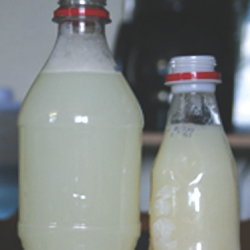Article contents
Assessing K–12 outreach
Published online by Cambridge University Press: 27 April 2011
Abstract

Outreach efforts within the materials science community include learning goals or outcomes designed with the purpose of increasing awareness or interest in the field, improving the learning or achievement of subject matter, or even supporting a type of literacy or understanding. These outcomes need to be defined and measured. To demonstrate the success of an outreach activity, an appropriate assessment scheme must be implemented to determine how effectively the goals have been met. Assessment of K–12 outreach is presented in this article using the framework of a K–12 engineering design cycle of Ask, Imagine, Plan, Create, and Improve. Links will be drawn from among the “Ask,” “Imagine,” and “Plan” phases to the development of objectives and the establishment of the assessment plan. The “Create” and “Improve” phases will be connected to data collection and analysis techniques. Three forms of evaluation are discussed—formative, summative, and interim—as well as four areas of knowledge—cognitive, affective, behavioral, and metacognitive. Finally, this article lists some common pitfalls to avoid when considering these issues in the planning and reviewing of programs that will make assessment of K–12 outreach efforts a more positive and rewarding endeavor.
- Type
- Research Article
- Information
- MRS Bulletin , Volume 36 , Issue 4: Addressing broader impacts through K–12 outreach in materials education , April 2011 , pp. 264 - 269
- Copyright
- Copyright © Materials Research Society 2011
References
- 3
- Cited by


